Text and photo: Željka Mihaljević
Although there are less than 1,000 citizens with permanent residence in B. Grahovo, the petition was signed by more than 2,000 citizens in five days, and the will of the people was respected by the Municipal Council.
In Bosanski Grahovo, in the middle of October this year, something that has never happened happened – the citizens are united in the fight against the start of a plant for the pyrolysis of waste tires. Citizens are trying to prevent the intention of the owner of the brick factory to start such a plant by signing a petition because, as they say, it is a process in which toxic and carcinogenic organic compounds are released, which, in addition to health problems, would set back the little progress achieved in terms of tourism and agriculture. They also emphasize that this is not only a problem of the municipality of Bosansko Grahovo, because wind, rainfall and underground water carry toxins beyond its and state borders.
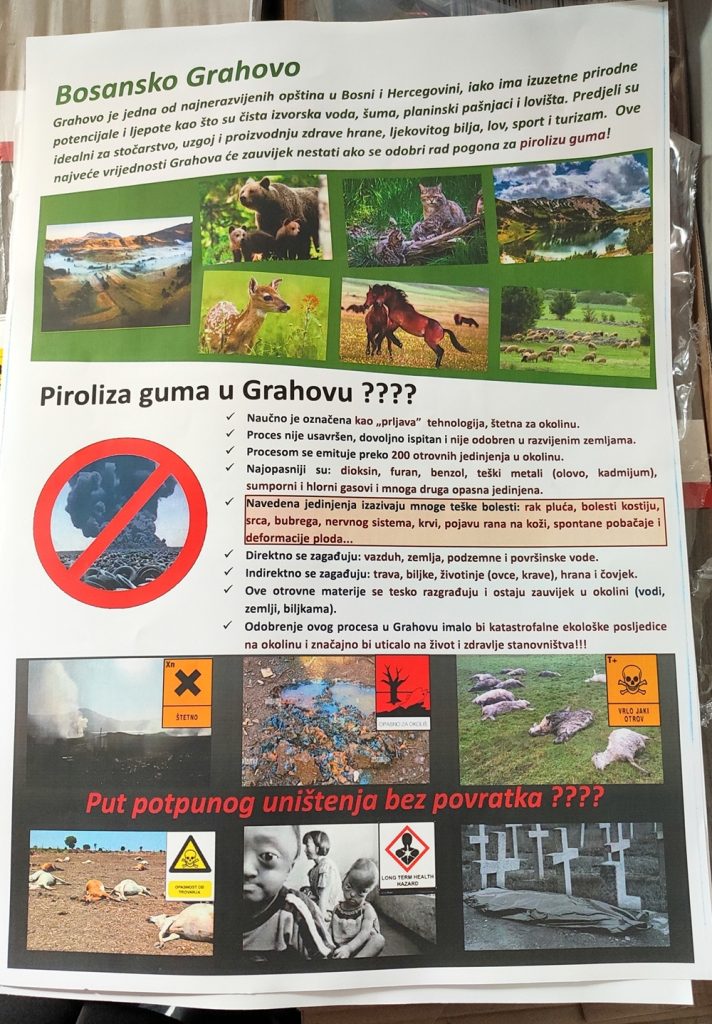
In order to convince the public that there is no danger of pollution, a meeting was held at the Elementary School “Grahovo” on the initiative of Mila Madžarić, Deputy Director of Brick Brick Plant, and the investor, i.e. representative of SGI Technology Safet Hadžić. We followed that gathering, which, we have to say, was the largest in this returnee municipality, as more than 100 people were “crammed” into the school hall. They were guided by one single goal – to say a resolute NO to tire incinerators, as they called pyrolysis, and plastered the city and the meeting place with educational posters.
The representative of SGI Technology pointed out that the company has been developing pyrolysis technology for more than 15 years, that it is a technology that differs from a waste incinerator, and noted that today there is a major global trend of reducing carbon emissions in optimal technologies for waste disposal, where pyrolysis plays a big role. He also stated that the technology that is planned to be installed in Bosanski Grahovo complies with EU norms, and that such a facility is already functioning in Tešanj. Although often interrupted by citizens, Hadžić completed his presentation by explaining that by placing waste rubber in a pyrolytic reactor, it decomposes under high temperature without the presence of oxygen and produces condensing and non-condensing gases. The first of these, after cooling, turn into a liquid – pyrolysis oil, while the second category of gases is returned to the burner system, and analyzes by a university in Belgium have shown that this gas is similar to natural gas, and that it does not produce any pollution. He also said that after the installation of pyrolysis equipment in Bosanski Grahovo, it is also planned to be installed in Belgium.
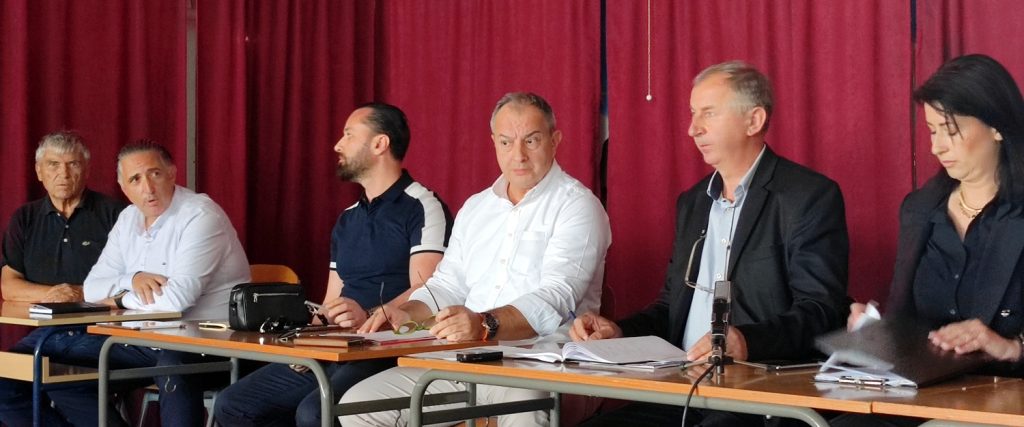
Later, in a statement to the media, the representative of “Brick” Mile Madžarić said, among other things: “The results of tests and measurements carried out by renowned institutes from Belgium show us that this type of plant produces minimal or almost no pollution, unlike some other plants such as Indian, Chinese, Malaysian.”
However, eminent experts, doctors of science, chemists, technologists and ecologists, all born in Grahova, came from Serbia, Montenegro and Banja Luka to explain to the people and the municipal authorities what the danger is. Among them is Milka Vidović, Ph.D. of technical sciences and a specialist in sanitary chemistry who told us: “Practically, there would be no life around that brick factory anymore.” Pyrolysis products, dioxins and furans, are chemicals with a half-life of 15 years. They dissolve in fatty tissues and cause cancerous diseases in humans. The problem is also big with cattle, they are excreted in milk. The problem is with water, since they dissolve in water and fall into the sediment. So there is no way to remove them. Italy once had a big problem after an accident in one such factory where about 6,000 tons of various chemicals were spilled, of which only 1 kg was dioxin. Deeply, she removed a 40 cm layer of soil around her and was unable to solve the problem, and in addition, all the cattle had to be destroyed. Not to mention that people’s health, which has no price, would be completely endangered.”
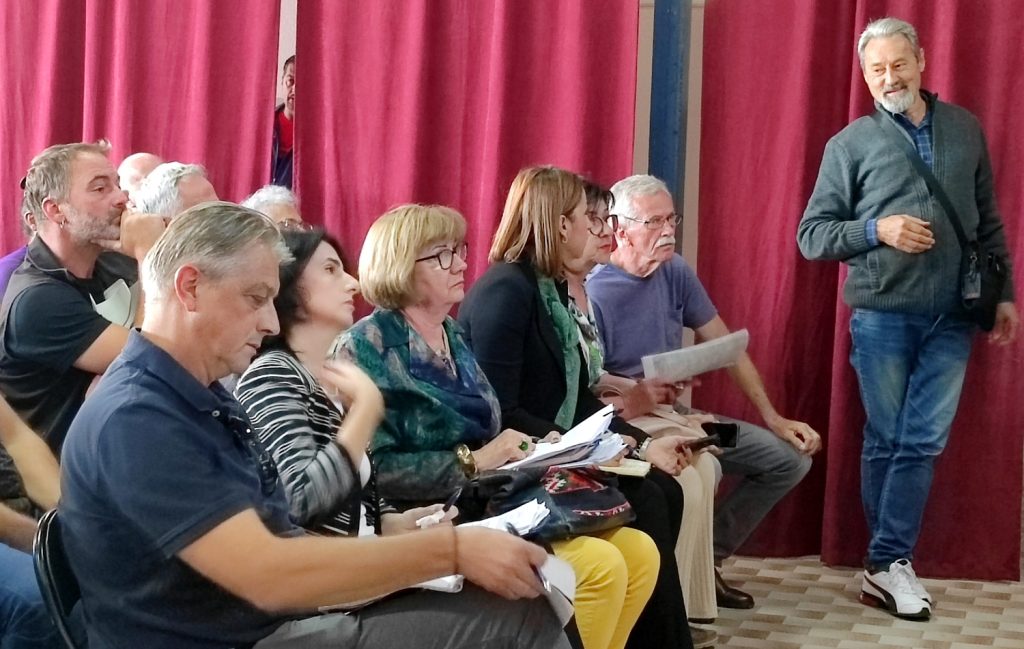
Asst. Ph.D. Dragana Blagojević, head of the department for analytical chemistry at the Faculty of Science and Mathematics in Banja Luka, stated that she had the opportunity to study the documents from Tešnj and added that they were written by someone who does not understand the profession. She added that the investors will certainly create a technological project, but that the citizens of B. Grahov will ask for its revision. She also emphasized that coke, gas and pyrolytic oil are produced in the pyrolysis process, and that each of these phases contains toxins (sulfur, fluorine, nitrogen, etc.), which the investors did not tell the citizens, and that apart from methane, pyrolytic gas contains and hydrogen, sulfide, carbon, carbon dioxide, carbon monoxide, ethane, propane, butane. As for dioxin, she emphasized that it is at the very top of the carcinogenic list, and asked investors to be open-minded. She also informed them of the fact that Bosnia and Herzegovina is a signatory to the Convention for the Suppression and Prohibition of the Emission of Persistent Pollutants, as well as that there are no accredited institutions or methods for the determination of dioxins and furans in Bosnia and Herzegovina, and asked how they intend to monitor these gases!? Will it always be taken to Belgium or somewhere else, what about waste water, who will do the sampling of water, air and soil?! Investors had no answers to those questions.
And Boris Ivanović, who spends his retirement days in his hometown, appeals to all environmental associations from BiH and the Republic of Croatia to engage in the protection of a healthy environment and adds: “I call on conscientious citizens and politicians whose souls have not been bought by the tycoons, to oppose this destruction nature. Grahovo has nothing but water and air, and now they want to destroy that by burning tires, which is disastrous for me, and for all the people who mainly live from agriculture and beekeeping.”
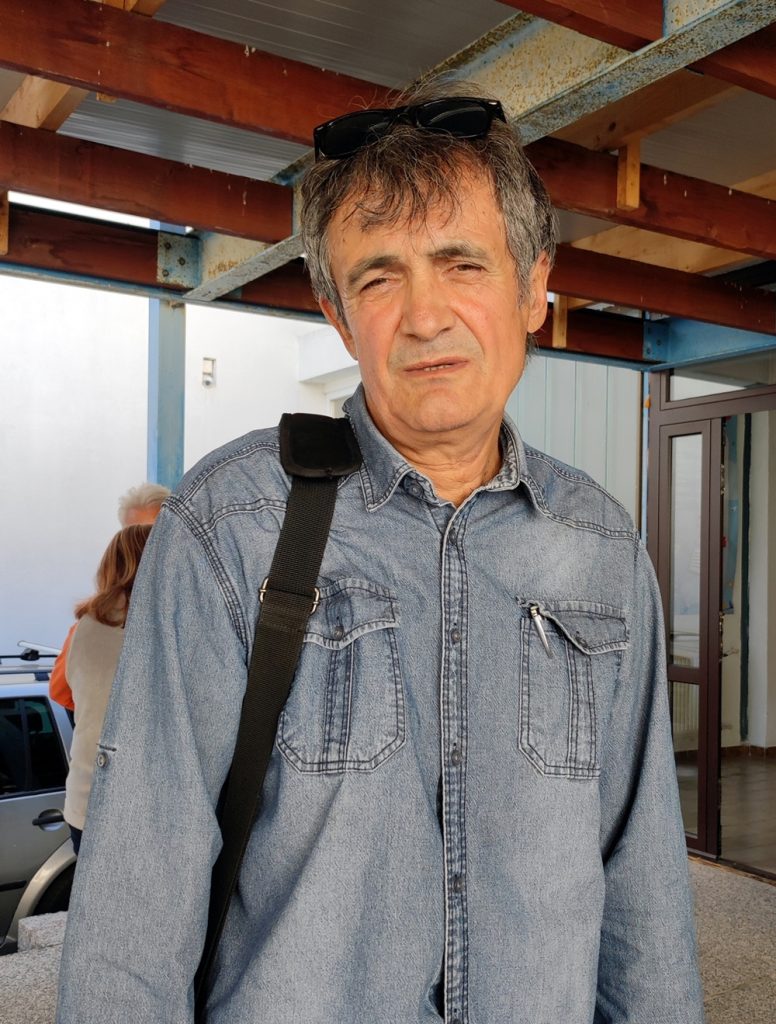
One of them is Bojan Marinković, who is engaged in cattle breeding, production of cheese, cream and milk.
“It’s all ecological production, so if this factory opens it will no longer be an ecological product, I don’t know if I’ll even produce more and who I’ll be able to sell it to,” says Bojan, and Rade Vještica, who, along with tourism, is also engaged in beekeeping, he adds: “I have more than 40 bee colonies. This year, we received a gold medal for the quality of honey at the international beekeeping fair in Tuzla, my beekeeping. With the opening of this factory, everything would be over, the bees are the first to be hit, that would be the end.”
For the most part, the arguments of the factory’s advocates did not convince the citizens of its harmlessness, and occasional stormy reactions showed a clear attitude. Dušica Prpa, who lives in the village of Vidovići in the immediate vicinity of the brick factory, went one step further and announced more radical measures: “We are ready to go all the way. If the authorities give permission, if it does start, we are ready to stand in front of the gates and physically defend such a thing, because the only thing left for us is a healthy environment. That’s why we live here and it’s not found anywhere else.”
The president of OV Slađana Čeko also took note of this, and said: “It is clear that the citizens are against any way of burning tires in B. Grahov at the Ciglana location. In addition to numerous attendances at this gathering, they also signed a petition. We collected 550 signatures on the ground in five days, and more than 1,500 signed it online. The councilors will keep this in mind when they discuss starting a plant for the pyrolysis of waste tires.”
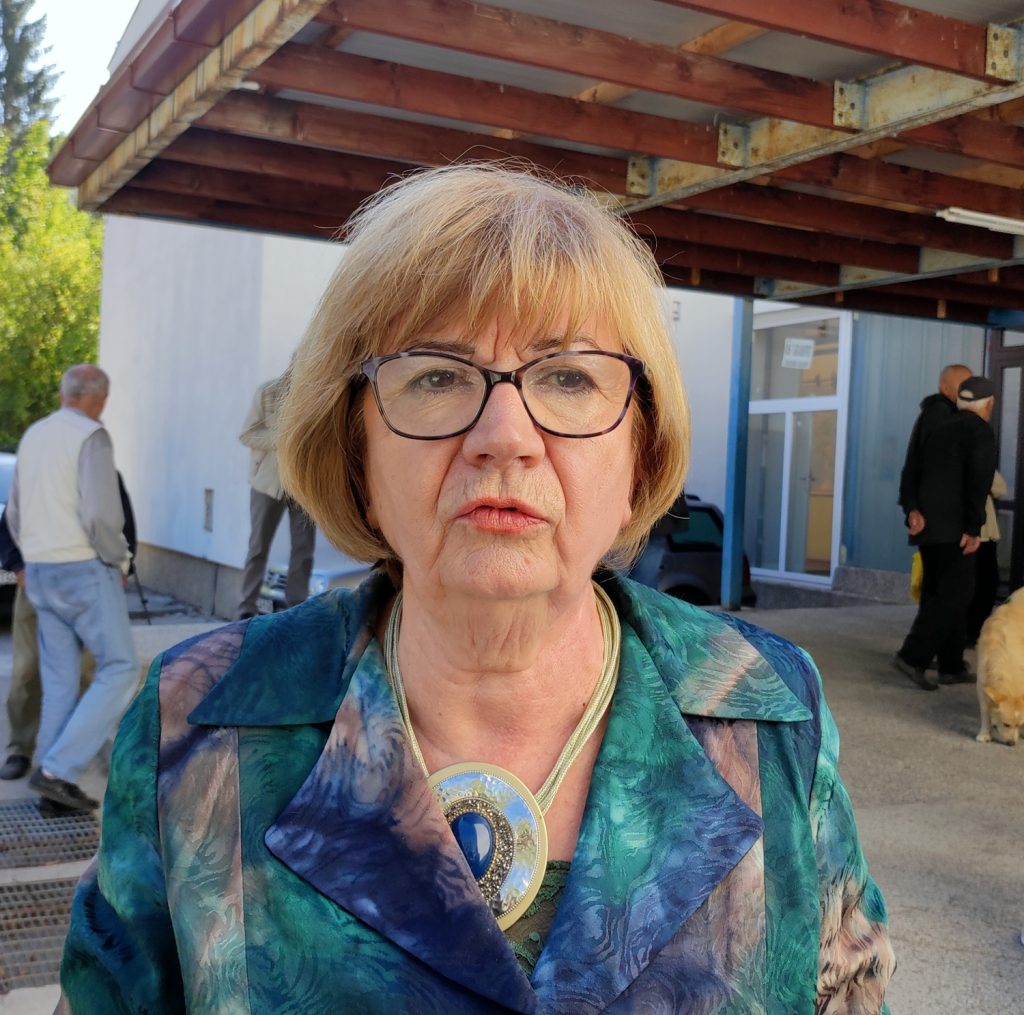
It should also be pointed out that Grahovo borders the Republic of Croatia, that the waters from this area flow into Krk, that on the other side of the border the Dinar has been declared a nature park, that the neighboring country is in the EU, and that Croatia should also consider starting such a factory. manifest. All this, as well as the laws and agreements on environmental protection signed between Bosnia and Herzegovina and the Republic of Croatia, were clarified by eminent experts at the meeting, and they clearly told the investors and the owner of the Brickworks that they were mistaken in their assessments because they underestimated the people of Grahov, and the experts were born from it. who are ready to fight with all scientific and legal arguments against such a plant.
Decision of OV B. Grahovo
Concerned about the events related to the opening of a plant for the pyrolysis of waste automobile tires and the accumulation of them in the vicinity of the factory, the councilors of OV B. Grahovo passed a Decision at the session of October 24, requesting the Federal Ministry of the Environment and Tourism to “suspend the procedure for issuing an environmental permit for the pyrolysis of tires in B. Grahovo and cancel all actions in the procedure at the request of the company Brick Bosansko Grahovo or from another company for the premises of Ciglane Vidovići in Bosansko Grahovo for the reason that the implementation of the project would violate the basic human rights of citizens, specifically the right to clean water and the right to a healthy environment and all with the aim of preserving the ecology in Bosanski Grahovo, in accordance with the Air Law and international conventions, and Bosnia and Herzegovina has taken over a lot of international environmental conventions, protocols, treaties, agreements and amendments from the former Yugoslavia, but is also a signatory to several international conventions as an independent country: UN the Convention to Combat Desertification (UNCCD, 2000), the UN Convention on Biodiversity (2003), the Convention on Cooperation in the Protection and Sustainable Use of the Danube River (Danube Convention, 2005), the Basel Convention on the Control of Transboundary Transport and Disposal of Hazardous Waste, Bern Convention, Aarhus Convention, Cartagena Protocol, etc. Bosnia and Herzegovina ratified the UN Framework Convention on Climate Change in 2000 (signed the Kyoto Protocol on April 16, 2007 and acceded to the Kyoto Protocol on July 15, 2007).
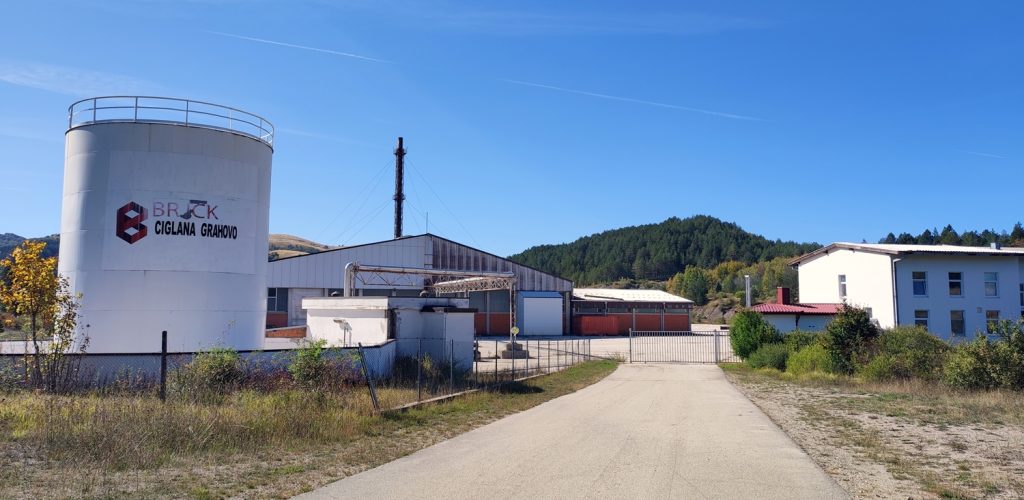
With its Decision, the OV B. Grahova requests the Ministry of Agriculture, Water Management and Forestry HBŽ to refuse the issuance of a water permit in order to protect water resources, and from the competent Federal and County Inspection Service to order the urgent removal of waste from the vicinity of the Brick Bosansko Grahovo factory in accordance with legal procedures because they do not have a permit for waste disposal. They also asked the competent inspection to determine the existence of work permits, and in the event that there are none, to seal the factory and to take legal measures against the responsible persons.
The council recommended the municipal mayor to “inform and inform the competent institutions in the Republic of Croatia as well as the competent institutions in neighboring municipalities in Bosnia and Herzegovina about the intention to install a factory for the pyrolysis of car tires in the area of Brick Bosansko Grahovo.”
In the same Decision, the OV proposes that the competent institutions of the Federation of Bosnia and Herzegovina and HBŽ “act with full responsibility on the conclusions, because this is the only way to ensure clean air, sufficient quantities of high-quality and hygienically correct drinking water, unpolluted agricultural land and healthy food, and team survival of man and the development of human civilization with the aim that future activities require close cooperation of all sectors, healthcare, technology and, most importantly, science.”
Therefore, OV B. Grahova firmly stands behind its citizens, all with the aim of preserving a healthy environment, and if the project of pyrolysis of waste car tires continues, they are ready to take more drastic steps.
This media content was created within the project of the Center for Civic Cooperation “Promoting Citizen Participation in Local Government” with the financial support of the National Foundation for Democracy/NED. The content is the sole responsibility of the author and does not necessarily reflect the views of NED or CGS.
The use of the content and its transfer to third parties is possible with the prior consent of the Center for Civic Cooperation, Livno.
Source: cgslivno.org





